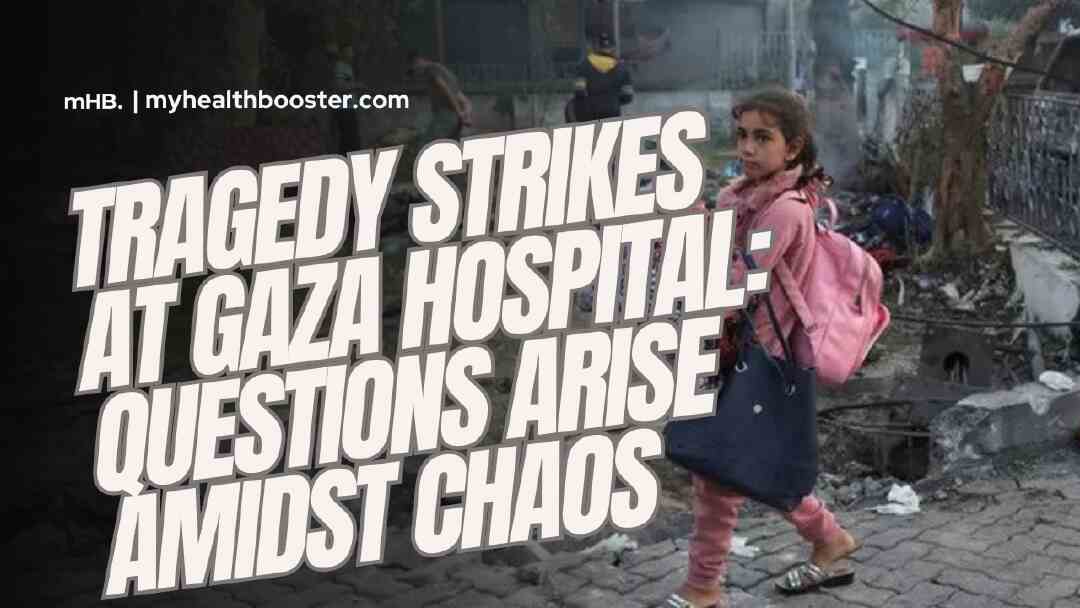In a tragic incident, Palestinian health officials now report that an explosion at a hospital in Gaza City on Tuesday night claimed the lives of at least 471 people. The cause of the explosion is a matter of dispute, with Palestinian authorities attributing it to an Israeli airstrike, while Israel’s military contends it resulted from a failed rocket launch by the militant group Palestinian Islamic Jihad. The scene was visited, where the painstaking process of collecting body parts continues.
The courtyard of Al-Ahli Arab Hospital is marred by blood-soaked mattresses and scattered clothing and personal belongings, remnants of the chaotic aftermath following the explosion and the ensuing fire. Nearby, a car park hosts the charred remains of over a dozen vehicles.
The surrounding structures also bear scars from the incident, apparently marked by shrapnel, though there is no discernible large impact crater.
An atmosphere of panic shrouds the area, as people grapple to comprehend what transpired at a location that was expected to be shielded under international humanitarian law.
“We left our home to come here,” a survivor recounted to the BBC. “We thought it would be safe, but then it got bombed.”
Doctors revealed that most of the victims were among the several thousand civilians who had sought refuge at the hospital since Friday. They had fled there in response to the Israeli military’s directive to evacuate the northern Gaza Strip, as it intensified its airstrikes against the militant group Hamas.
Many of those taking shelter in the courtyard were elderly or infirm and lacked means of transportation to move southward.
One eyewitness recounted that they were sitting on the ground when a massive blast rocked the area.
People from various parts of the Gaza Strip swiftly arrived at the scene to offer assistance. They gathered bodies and commenced evacuating the injured.
Individuals in critical condition were transported on motorbikes, while those with less severe injuries had to make their way on foot to Shifa hospital, which is approximately 3 kilometers (about two miles) away.
Another man mentioned that he heard something just before the explosion but was uncertain about its origin. He emphasized that they returned to the hospital due to a lack of alternative options.
“Where else can we go? Are we leaving like in 1948?” he asked, alluding to the first Arab-Israeli war, during which hundreds of thousands of Palestinians were displaced or fled from their homes.
Despite their protected status, the World Health Organization reports that 20 hospitals in the northern region, including Al-Ahli Arab, have received evacuation orders. However, the UN agency deems these orders impossible to execute due to the prevailing insecurity, the critical condition of many patients, the scarcity of ambulances, and a shortage of available beds elsewhere. This dire situation has prompted warnings that it will “further worsen the current humanitarian and public health catastrophe.”
